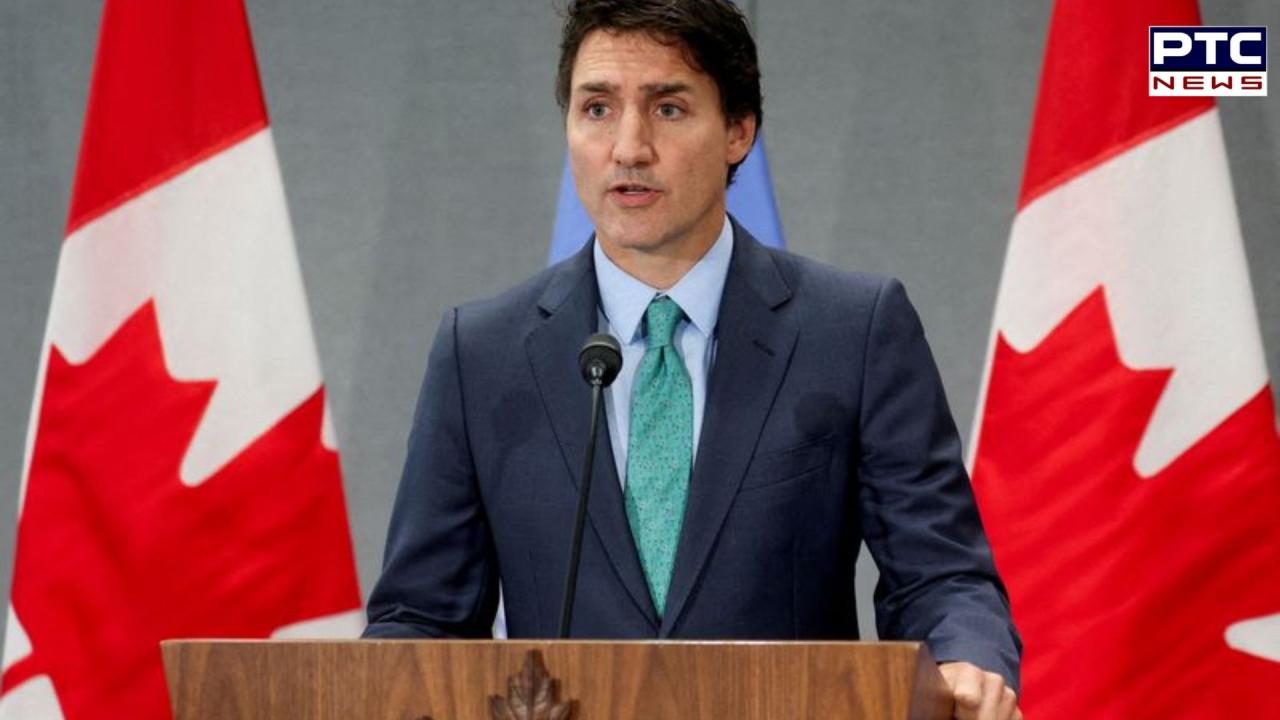World
Canadian PM Trudeau wins no-confidence vote, retaining Parliamentary support

PTC News Desk: Canadian Prime Minister Justin Trudeau successfully navigated a vote of no confidence on Wednesday, marking a significant moment for his minority Liberal government as it grapples with declining popularity after nine years in office. The vote, which followed a passionate and often contentious debate in Parliament, concluded with a decisive outcome of 211 to 120 against the Conservative motion aimed at unseating the Liberal administration and triggering snap elections.
Despite this temporary reprieve, Trudeau’s grip on power remains precarious. The main opposition party, the Conservative Party, led by Pierre Poilievre, has pledged to make another attempt to topple the government as early as next Tuesday. Poilievre, buoyed by a substantial lead in public opinion polls, has expressed eagerness for a snap election since the left-leaning New Democratic Party (NDP) recently abandoned its coalition agreement with the Liberals, thereby increasing the risk of a government collapse.
During the debate, Poilievre criticised Trudeau for what he described as failures to tackle escalating living costs, a housing crisis, and rising crime rates, while accusing the government of significantly increasing the national debt. He emphasized that after nine years under Liberal governance, “the promise of Canada is broken.”
However, the NDP and other opposition parties have resisted Poilievre’s right-wing agenda, with Liberal House leader Karina Gould accusing the Conservatives of “playing games.” She expressed disappointment over the Tories’ decision to pursue another no-confidence vote so soon after the last one, deeming it “pretty lame.”
In a display of cooperation, the NDP aligned with the Liberals immediately after the no-confidence vote to successfully pass legislation related to capital gains taxes, thereby averting another political crisis for the government.
Poilievre remains undeterred and has promised to continue efforts to bring down the government, with the next opportunity to do so coming next week. Should he fail, there will be additional chances before the year concludes. Meanwhile, the separatist Bloc Quebecois has also indicated it may demand concessions from the Liberals in exchange for its continued support in Parliament beyond the end of October.
Trudeau initially rose to power in 2015 and has managed to retain his position by defeating two of Poilievre’s predecessors in elections held in 2019 and 2021. A coalition deal with the NDP had been expected to stabilise his government until late 2025; however, the NDP opted to terminate the agreement prematurely, citing its own declining popularity as a reason.
Recent polling data from Angus Reid indicates a stark contrast in voter intentions, with the Conservatives holding a significant lead at 43 percent compared to the Liberals’ 21 percent, and the NDP trailing at 19 percent. Moving forward, NDP leader Jagmeet Singh indicated that his party would carefully assess each legislative bill before determining how to vote.
Bloc leader Yves-Francois Blanchette stated on Wednesday that he intends to support the government until the end of October, but warned that if there is no progress on the Bloc’s legislative priorities by then, his party may withdraw its support.
In Canada’s Westminster parliamentary system, it is crucial for a ruling party to maintain the confidence of the House of Commons, which necessitates support from a majority of its members. Currently, the Liberals hold 153 seats, while the Conservatives have 119, the Bloc Quebecois 33, and the NDP 25.
Also Read: BJP leader criticises Kangana Ranaut’s ‘consistent rant’ and ‘illogical statements’
– With inputs from agencies










